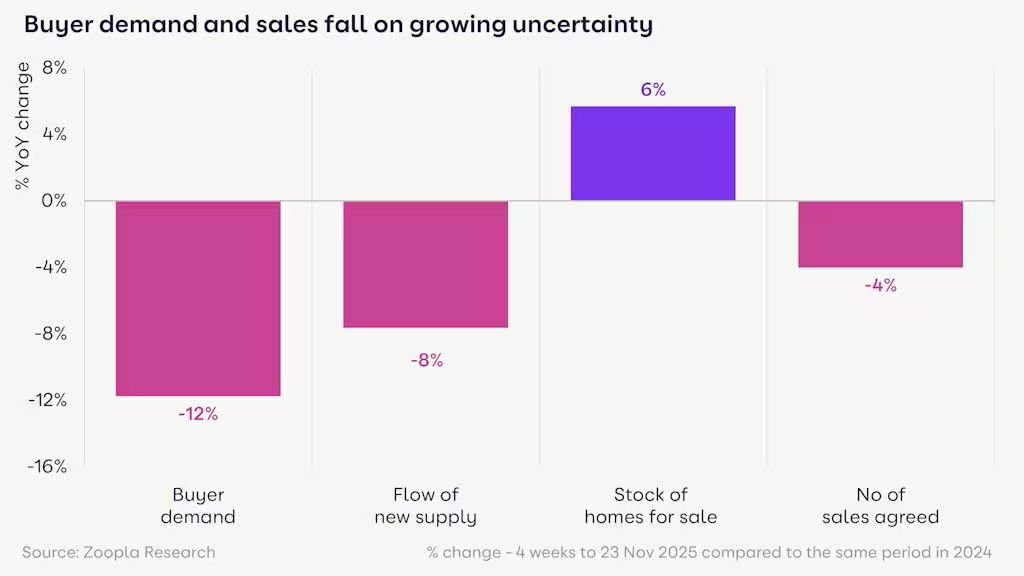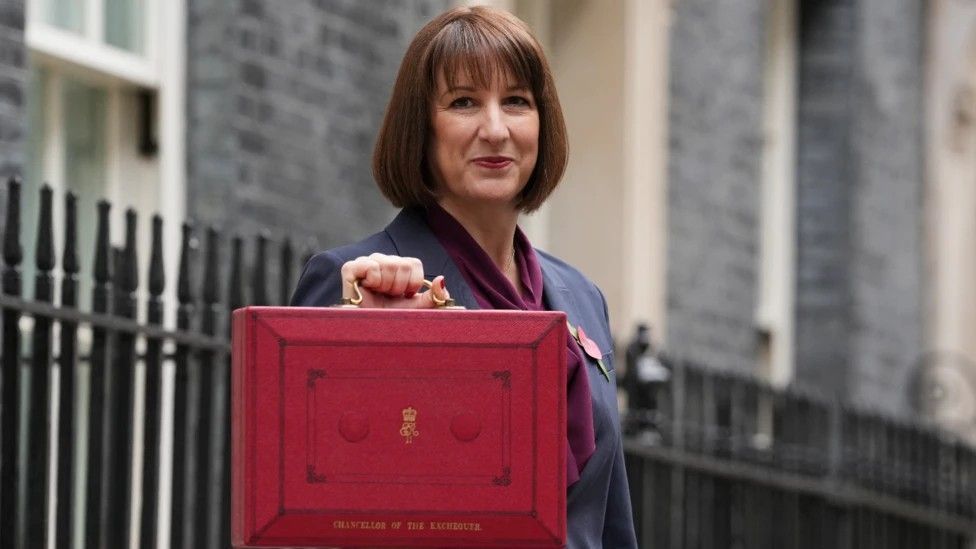What is happening to the BTL market in 2023 and how we can assist.

Adapted from an Investor’s Chronicle article by Val Cipriani February 16, 2023
The environment is tougher than ever for small private landlords, and some are already selling up
- Buy-to-let has become increasingly unprofitable for landlords with mortgages
- Factors persuading them to get out of the sector include falling house prices, higher costs and changes to capital gains tax.
- Using a company structure isn't always a solution that works
- Landlords on the hunt for better yields might want to look north
It’s a tricky time for buy-to-let investors. Between rising mortgage rates, less generous tax treatment and tightening regulations, for many landlords the numbers have stopped adding up. With demand for rental properties still very strong, an autopsy of the market would be premature – the patient still has a pulse – but profits are not what they used to be, and managing a rental property has become an increasingly time-consuming business.
As a result, an increasing number of landlords are choosing to exit the sector, while those who remain are pondering the best way to adapt to the new market conditions.
The going gets tougher
It’s hard to overstate the impact of rising interest rates. As Chris Norris, director of policy at the National Residential Landlords Association (NRLA), puts it: “There is a world of difference between what you can achieve today if you are applying for a remortgage, or a new mortgage compared to this time last year.”
A 3 per cent increase in interest rates, which is roughly what we have seen in the past year,equates to an additional interest rate cost of £250 a month for every £100,000 borrowed. Landlords on fixed-rate deals will feel the pain when these end.
Rental growth still looks strong in many areas of the country. As at January 2023, Hamptons put it at 8.3 per cent year on year on new lets in Great Britain, and at 9.1 per cent in the Greater London area. This may sound like a lot, and it is putting pressure on renters. In 2022, 40 per cent of renters moving home in London chose to leave the capital, up from 28 per cent a decade ago. But at the same time it’s not enough. David Fell, senior analyst at Hamptons, says: “The increase in rents this year is nowhere close to offsetting the increase in mortgage costs.”
Meanwhile, buy-to-let has become a less tax-efficient investment for higher-rate taxpayers who own property in their own name. Between 2017 and 2020, full tax relief on mortgage interest was gradually replaced by a 20 per cent tax reduction, pushing some landlords into a higher income tax bracket and leaving higher-rate taxpayers unable to claim the difference.
The regulatory environment is getting tougher too. The Renters’ Reform Bill, which features a package of reforms to protect renters including a ban on ‘no-fault’ evictions, is expected to be debated and voted on in Parliament sometime in spring this year. And by 2025 all newly rented properties should be required to have an Energy Performance Certificate (EPC) rating of C or above, according to a government proposal that is currently stuck at the consultation phase.
Investors are starting to sell. A Savills analysis of HMRC capital gains tax (CGT) receipt data estimates that a record 47,000 investment properties and second homes were sold in the three months to November 2022 – a 21 per cent year-on-year increase.
Norris says while the NRLA has not seen signs of a “mass market exit” in its membership polls, a growing number of landlords intend to sell at least one of their properties. The association typically represents landlords with mid-sized portfolios of three to eight properties.
Should I stay or should I go?
Buy-to-let investors have to consider many moving parts when deciding if and what to sell. The financial hit from mortgage rates will vary hugely depending on the levels of borrowing and the yield generated by each property, with landlords in London and the south-east especially feeling the pinch due to higher house prices. According to Q4 2022 data from Hamptons, average yields in these regions hover around the 5 per cent mark – notably lower than in the north of England, where they reach 7.5-8 per cent in areas such as Liverpool and Newcastle.
Monthly profitability also matters to lenders, which typically require a 125 per cent minimum interest coverage ratio (the ratio of gross rental income to mortgage interest repayments) in order to agree to a buy-to-let mortgage.
For landlords who are on the fence, energy efficiency might very well be what tips the balance. Robert Salter, director at Blick Rothenberg, says a lot of rental properties are ‘old stock’ and in need of extensive energy efficiency improvements that might be uneconomical. “I would certainly understand why those landlords who have properties that are EPC rated D or less would be looking to sell at the present time,” he says. According to the government proposal, landlords will be expected to spend up to £10,000 on the necessary energy efficiency improvements, regardless of property or rent value.
Measures such as energy efficiency requirements, says Salter, point to the fact that the government appears “keen for the buy-to-let market to become increasingly professionalised”. Landlords who decide to stay in the market should prepare for a growing level of regulation and scrutiny. Rob Morgan, chief investment analyst at Charles Stanley, says that investors need to see buy-to-let as a “mini business, rather than a passive hands-off investment”.
On these grounds, he argues that buy-to-let can be a good way to supplement a pension for people in their 50s and 60s, who have typically accumulated a lot of experience and contacts but still have a significant amount of energy. “It probably changes when you get a bit older,” he says. “I’m not sure you are going to be wanting tenants to phone you up in the middle of the night saying the boiler has broken.”
Starting a buy-to-let company
Owning a buy-to-let property through a limited company tends to be more tax-efficient, particularly for higher-rate taxpayers. All mortgage interest payments are tax-deductible for companies, which can help with rising interest rates costs. Companies are charged corporation tax on profits, which is currently applied at 19 per cent – although this will increase from April 2023 for companies with profits over £50,000, reaching a 25 per cent rate on profits over £250,000.
Landlords who receive a salary from their company still have to pay income tax on it. They can also supplement it with dividends, to make the most of the dividend tax allowance and of the lower dividend tax rates. But the dividend tax allowance is just £2,000, shrinking to £1,000 from April 2023 and to £500 from April 2024.
Barriers to entry
It is not all doom and gloom. Buy-to-let investors with a low LTV are less impacted by interest rates, and cash-heavy investors might be able to spot some opportunities in the downturn. Meanwhile, there is a decent chance that interest rates will start decreasing next year. For landlords who have a good relationship with their tenants and want to hold on to their properties, it might be a case of waiting for the storm to pass.
But the market is changing, with increased barriers to entry. Some landlords whose properties have become unprofitable will leave the market, while others will have to put down more equity to bring their mortgage down to a more affordable level, especially in the south-east, says Hamptons’ Fell.
How Bristol, Weston, Bath and Exeter Mortgages Online can help.
We have expert knowledge and a great deal of experience in dealing with investors and Buy to Let Mortgages. Any new or existing BTL client will deal directly with one of our Directors, Phil Clark, Russell Green or Chris Seward.
The BTL market is a very specialised one and many of the lenders offering the best terms and rates only deal with intermediaries like us.
Please note that we are qualified and regulated to only give you advise on mortgage and protection products.
It is essential that you take expert advice from your Accountant and/or Solicitor before making any decisions in order to avoid any unnecessary and potentially costly mistakes. Accountants and Solicitors will be able to look at your financial and tax liabilities in relation to all your wealth and circumstances.
We will gladly work closely with your chosen professionals once your circumstances have clearly been explained to you.
For further details about the mortgage and protection products we offer as a fully independent mortgage broker, or any other mortgage information, book your FREE CONSULTATION with one of our expert Mortgage Advisers.
Bristol Mortgages Online www.bristolmortgagesonline.com Tel 0117 325 1511
Bath Mortgages Online www.bathmortgagesonline.com Tel 01225 584 888
Weston Mortgages Online www.westonmortgagesonline.com Tel 01934 442 023
Exeter Mortgages Online www.exetermortgagesonline.com Tel 01392 690 888
Email info@swmortgages.com
#bristolmortgagebroker #bestmortgageadvice #bristolmortgageadviser #expertmortgageadvice
#independentmortgagebroker#bestmortgagedeals#firsttimebuyermortgage #bestremortgagedeal
#freemortgageconsultation #bestmortgagebroker #buytoletmortgage #investmentmortgage
#hmomortgage #highlyratedmortgagebroker #fivestarrated #googleverified #movetobristol
#endoffixedterm #besttimetoremortgage #earlyredemptionfee #ERC #guarantormortgage











